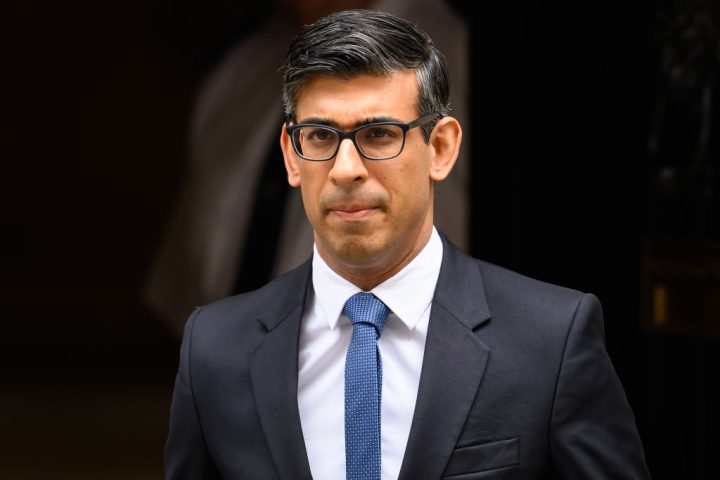When the Rwanda migrant removals programme was torpedoed by a European judge at a hastily-convened hearing one evening last summer, the notion that Britain had ‘taken back control’ of its borders crawled away to die.
The anonymous judge at the Strasbourg-based European Court of Human Rights issued a controversial ‘Rule 39’ instant order. This blocked the removal of the few failed asylum seekers who had not already been sprung from the proposed inaugural flight via appeals made to British courts in the preceding days.
It is likely Sunak himself is genuinely convinced that the current global asylum regime is unsustainable
One Tory MP on the cultural right of the party sought out the then-PM Boris Johnson. They pleaded with him to ignore the ruling, which strayed far beyond the ECHR’s original powers, and just get a plane with some illegal immigrants on it in the air and heading for Rwanda. To fail to do that would destroy faith in the Tories among millions of voters, he warned.
That MP was told by Johnson that, no, the order could not be ignored and that he needed to develop some ‘strategic patience’. Yet it turned out that the man calling for patience was running out of time much faster than he realised. A few weeks later the herd moved against him and his former Praetorian guard of right-wing MPs did nothing to stop it. Indeed, many joined in with the stampede.
Rishi Sunak has clearly resolved not to make the same mistake that Johnson did and instead is letting the traditionalist wing of his party set the pace on ‘stopping the boats’. After receiving representations from the likes of Sir John Hayes and Danny Kruger from the Common Sense Group of backbenchers, the Prime Minister has agreed to toughen up the Illegal Migration Bill. The measures will help prevent future flights to Rwanda from being grounded either by British judges or European ones.
First, the criteria for permitting a British judge to block a deportation is going to be very significantly narrowed. Only where a judge is persuaded that a removal will lead to ‘serious and irreversible harm’ will a deportation be able to be blocked.
Secondly, and more provocatively still, as far as liberal establishment opinion is concerned, the Bill is now going to expressly authorise the Home Secretary to disregard interim orders from Strasbourg of the sort that put the kybosh on the debut flight to Rwanda.
It is not as if Suella Braverman has gone freelance in imposing these changes to the flagship legislation. They have been agreed with the Hayes-Kruger set, which also features the Ipswich MP Tom Hunt and Johnathan Gullis from Stoke-on-Trent North as influential members, by Immigration Minister Robert Jenrick, the Prime Minister’s trusted ‘fixer’ on this issue.
Predictably enough, the legal establishment has already signalled its alarm. The former Lord Chief Justice Lord Thomas, who sits as a cross-bench peer, told the BBC that ignoring interim ECHR judgments would be ‘an immensely serious step’ setting ‘an extraordinarily bad example’.
‘This is a step a government should never take because it is symbolic of a breach of the rule of law,’ he added. That last comment seems illogical given the power is dependent on it being contained in primary legislation that will have completed its parliamentary stages and made it on to the statute book. But in any event, Lord Thomas will not be the last establishment figure to launch into hyperbole against the government’s hardball approach.
So why has Sunak agreed to the Common Sense Group’s wish list? Some will say he has become its prisoner, though his willingness to compromise with the EU over the trading regime applying to Northern Ireland casts doubt on that, as does his relaxed attitude to levels of legal immigration.
Much more likely is that Sunak himself is genuinely convinced that the current global asylum regime is unsustainable. He likely believes that the UK must step away from it quickly if illegal immigration is to be prevented from reaching levels that will lead to catastrophic social consequences.
No doubt he will also have received advice telling him that on the one hand, failing to stop the boats as a result of being blocked by opposition MPs, the House of Lords and ‘lefty lawyers’ may leave him with a fighting chance of retaining support among migration-sceptic voters. But on the other, failing because of not going as far as some of his own MPs thought necessary would be fatal. So he must be seen to ‘strain every sinew’, as he put it in his five key pledges press conference in January.
Sir John Hayes and his band of traditionalist die-hards are making the running because on this key issue at least, Rishi Sunak knows that they are right.







Comments